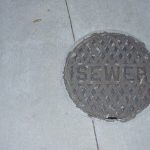It can be difficult for a homeowner to know if their
plumbing is up to a good standard. For this reason, it’s a good idea to take some preventative measures to minimize the chances of experiencing plumbing problems later. In order to do this, it’s necessary to identify any potential problems first to establish if anything needs to be fixed right away. Let’s look at some simple methods to identify potential issues and adopt some preventative measures.
Identifying Plumbing Problems
There are a few different ways that someone without any plumbing experience can detect certain common issues. Early detection will identify these plumbing issues before they can develop into larger problems that will be harder and more expensive to fix.
Check under sinks: adopt a routine to check under sinks for any signs of water leaks. Keeping these areas clear and clutter free will make this task much easier.
Check for drainage problems: if a bathroom sink does not drain correctly, there could be a simple blockage to remove. If this drainage problem happens and the shower in the same bathroom will also not drain, there is a larger blockage further down the line that will require professional removal.
Check for strange water noises: if your water is making a strange gurgling or a loud hissing noise this is an early indicator that a blockage is developing.
Finding leaks: if you believe that your toilet is leaking drop some food dye into the water tank and then check all your toilet bowls. If there is colored water in one of your toilets, you will know that this one has the leak and is driving up your water bill.
Taking Preventative Action
There are a number of simple preventative measures that can be adopted by a homeowner with little to no DIY skills.
Draining the tank: over time a natural amount of sediment will gradually build up inside your water tank. If you want to reduce this sediment drain a gallon of water from the water heater every 3 months.
Protecting the drains: many stores stock small strainers designed to be installed on your bathtub drains. These will prevent your drains from clogging by soap deposits and clumps of hair.
Smart garbage disposal use: avoid putting coffee ground or hot oil in the garbage disposal. Smaller debris like coffee grounds and cooked rice can easily form into larger clogs that can be hard to shift. Hot oil can condense when you run the cold water and form clogs of fatty deposits that other material can attach to form even larger clogs.
Avoid chemical cleaners: if you have a clog avoid using chemical drain cleaners to clear them. These types of drain cleaning products can cause damage to your plumbing that could result in a repair or even replacement in extreme cases. If the clog is hard to move it would be a better idea to contact a
local certified plumbing expert for help. They will have specialized tools like augurs and the experience to remove the clog manually.
By Giovanni Longo President Flood Brothers Plumbing
Giovanni Longo is a 3rd generation master plumber who has been practicing his craft and trade in the greater Los Angeles area for well over a decade and a half. A plumbing and hydraulics-engineering innovator, Giovanni’s particular world-class expertise focuses on dealing with challenging sewer system designs as well as resolving complex commercial and residential draining issues. As a certified Flood Mitigation expert, he is also well versed in a wide variety of water damage and remediation solution.





